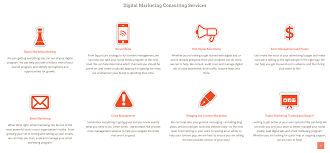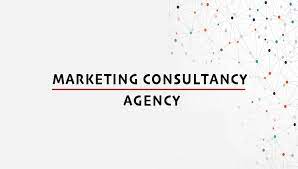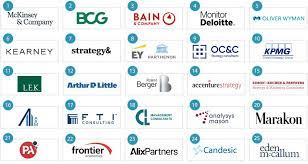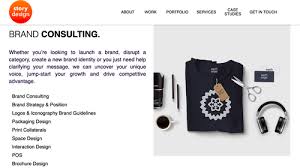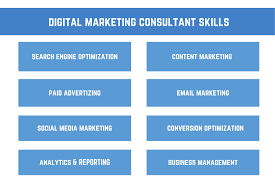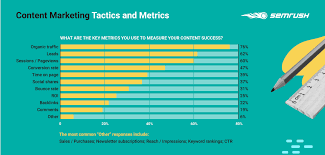Unlocking Success in the Digital Era: The Role of a Skilled Digital Media Consultant
The Role of a Digital Media Consultant: Navigating the Digital Landscape
In today’s fast-paced and ever-evolving digital world, businesses are constantly searching for ways to effectively navigate the vast realm of digital media. This is where a digital media consultant comes into play, offering invaluable expertise and guidance to help businesses thrive in the online landscape.
A digital media consultant is a seasoned professional who specializes in developing and implementing strategies to maximize a company’s online presence. They possess a deep understanding of various digital platforms, trends, and consumer behavior, allowing them to craft tailored strategies that resonate with target audiences.
One of the primary responsibilities of a digital media consultant is to analyze the specific needs and goals of their clients. By conducting thorough research and gathering data, they gain insights into the target market, competition, and industry trends. This information serves as a foundation for developing effective strategies that align with the client’s objectives.
One key aspect of a digital media consultant’s role is managing an organization’s online presence across multiple platforms. This includes social media platforms such as Facebook, Instagram, Twitter, LinkedIn, as well as other channels like websites and blogs. They create engaging content that captures attention and drives customer engagement while ensuring brand consistency throughout all channels.
Additionally, a digital media consultant keeps up-to-date with emerging trends in the digital landscape. They understand the importance of staying ahead of the curve to ensure their clients remain competitive. Whether it’s exploring new social media features or implementing innovative advertising techniques, they continuously adapt their strategies to leverage new opportunities.
Another vital aspect of their role is monitoring analytics and measuring campaign performance. By analyzing data from various sources such as website traffic, social media engagement metrics, and conversion rates, they assess the effectiveness of their strategies. This allows them to make data-driven decisions and optimize campaigns for better results.
Moreover, a skilled digital media consultant understands the significance of search engine optimization (SEO) in driving organic traffic to a website. They employ SEO techniques to enhance a company’s visibility on search engine results pages, improving its chances of being discovered by potential customers.
Collaboration is also a key element of their work. A digital media consultant often collaborates with other professionals such as graphic designers, content creators, and web developers to ensure a cohesive and impactful online presence. By working together, they create visually appealing and engaging digital assets that resonate with the target audience.
In conclusion, the role of a digital media consultant is crucial in today’s digital landscape. With their expertise in understanding consumer behavior, implementing effective strategies across multiple platforms, and staying ahead of emerging trends, they play an instrumental role in helping businesses navigate the complexities of the online world. By partnering with a skilled digital media consultant, companies can unlock their full potential and achieve success in the ever-expanding digital realm.
7 Frequently Asked Questions About Digital Media Consultants in the UK
- What is the rate for digital media consultant?
- What is the role of digital consultant?
- What does a digital media consultant do?
- Is Digital Consulting a good career?
- What does an ad consultant do?
- How do I become a digital media consultant?
- How do social media consultants work?
What is the rate for digital media consultant?
The rate for a digital media consultant can vary depending on several factors, including the consultant’s level of experience, expertise, location, and the scope of the project or services required. Rates can be charged on an hourly basis, project basis, or as a monthly retainer fee.
In general, hourly rates for digital media consultants can range from £50 to £150 per hour. However, it’s important to note that rates may differ significantly based on the consultant’s reputation and track record of delivering successful results.
For project-based work, rates can vary widely depending on the complexity and duration of the project. It is common for consultants to provide a detailed proposal outlining the scope of work and associated costs.
Monthly retainer fees are another common pricing structure for ongoing consultancy services. These fees typically cover a set number of hours or specific deliverables each month. Retainer fees can range from a few hundred pounds to several thousand pounds per month, depending on the level of service required.
It is recommended to discuss your specific requirements with potential digital media consultants to receive accurate pricing information tailored to your needs. This allows you to negotiate and find a mutually beneficial agreement that aligns with your budget and expected outcomes.
What is the role of digital consultant?
The role of a digital consultant is to provide expert guidance and support to businesses in navigating the digital landscape and leveraging digital technologies to achieve their goals. Digital consultants possess a deep understanding of various digital platforms, trends, and strategies, allowing them to develop customized solutions for their clients.
One of the primary responsibilities of a digital consultant is to assess a company’s current digital presence and identify areas for improvement. They conduct thorough audits and analyses of websites, social media accounts, online advertising campaigns, and other digital assets. Based on their findings, they provide recommendations on how to optimize these channels for better performance and results.
Digital consultants also play a crucial role in developing comprehensive digital strategies. They work closely with clients to understand their business objectives, target audience, and competitive landscape. With this information, they create tailored strategies that encompass various aspects such as branding, content creation, social media marketing, search engine optimization (SEO), paid advertising campaigns, and more.
Furthermore, a digital consultant stays abreast of the latest industry trends and emerging technologies. They continuously research and analyze new tools and platforms that can benefit their clients’ businesses. By staying up-to-date with advancements in the digital sphere, they can offer innovative solutions that give their clients a competitive edge.
Another important aspect of a digital consultant’s role is data analysis. They monitor key performance indicators (KPIs) such as website traffic, conversion rates, engagement metrics, and ROI from marketing campaigns. By analyzing this data, they gain insights into the effectiveness of different strategies and tactics. This allows them to make data-driven decisions and optimize future efforts for better results.
Collaboration is also essential for a digital consultant. They often work closely with internal teams or external agencies to execute projects effectively. This may involve coordinating with web developers, designers, content creators, or advertising partners to ensure seamless implementation of strategies.
Additionally, a skilled digital consultant possesses strong communication skills. They are able to effectively convey complex digital concepts to clients who may not have a deep understanding of the digital landscape. They act as educators, providing guidance and training to help businesses understand and make informed decisions about their digital initiatives.
Overall, the role of a digital consultant is multifaceted and dynamic. They act as strategic partners, helping businesses navigate the complexities of the digital world, optimize their online presence, and achieve their goals. By leveraging their expertise in digital marketing, technology trends, and data analysis, they empower businesses to thrive in an increasingly digital-centric marketplace.
What does a digital media consultant do?
A digital media consultant is a professional who specializes in providing guidance and expertise to businesses in navigating the digital landscape. Their primary role is to develop and implement strategies that maximize a company’s online presence and achieve its digital marketing goals. Here are some key responsibilities of a digital media consultant:
- Strategy Development: A digital media consultant analyzes a client’s specific needs, goals, and target audience to develop effective strategies. They consider various factors such as industry trends, competition, and consumer behavior to create a roadmap for achieving desired outcomes.
- Online Presence Management: They manage and optimize an organization’s online presence across multiple platforms, including social media channels, websites, blogs, and other digital channels. This involves creating engaging content, ensuring brand consistency, and fostering customer engagement.
- Digital Advertising: Digital media consultants often oversee advertising campaigns across various online platforms such as social media advertising, search engine marketing (SEM), display advertising, and video advertising. They strategize on ad placement, targeting options, budget allocation, and monitor campaign performance to maximize ROI.
- Content Creation: They collaborate with content creators to develop compelling and relevant content that resonates with the target audience. This can include blog posts, articles, social media posts, videos, infographics, and more.
- Social Media Management: Digital media consultants are proficient in managing social media platforms effectively. They create social media strategies tailored to each platform (e.g., Facebook, Instagram) to increase brand visibility, engage with followers, monitor conversations about the brand or industry trends.
- Analytics and Reporting: Consultants track key performance indicators (KPIs) using analytics tools to measure the success of digital campaigns. They analyze data related to website traffic, engagement metrics on social media platforms or email marketing campaigns and provide insights into areas for improvement.
- Search Engine Optimization (SEO): They employ SEO techniques to improve a company’s visibility on search engine results pages (SERPs). This involves optimizing website content, conducting keyword research, improving site architecture, and implementing on-page and off-page SEO strategies.
- Stay Updated with Industry Trends: A digital media consultant constantly stays informed about emerging trends, new technologies, and changes in digital platforms. This allows them to adapt strategies accordingly and leverage new opportunities for their clients.
Overall, a digital media consultant plays a vital role in helping businesses navigate the complex world of digital marketing. By leveraging their expertise in strategy development, online presence management, advertising, content creation, analytics, SEO, and staying up-to-date with industry trends, they help businesses achieve their digital marketing objectives and drive growth in the online space.
Is Digital Consulting a good career?
Digital consulting can be a highly rewarding and fulfilling career choice, but it also comes with its own set of challenges. Here are some factors to consider when evaluating whether digital consulting is a good career for you:
Constant Learning Opportunities: The digital landscape is constantly evolving, with new technologies, platforms, and strategies emerging regularly. As a digital consultant, you’ll have the opportunity to continually learn and stay up-to-date with the latest trends and advancements. If you enjoy continuous learning and thrive in fast-paced environments, digital consulting can be an exciting career choice.
Variety of Projects and Industries: Digital consultants often work with clients across various industries, providing them with exposure to diverse projects and challenges. This variety can be intellectually stimulating and provide opportunities for personal growth as you gain expertise in different sectors.
Impactful Work: Digital consultants have the ability to make a significant impact on their clients’ businesses. By developing effective digital strategies, optimizing online presence, and driving customer engagement, consultants help businesses achieve their goals and grow their brand presence. Seeing the positive outcomes of your work can be highly rewarding.
Collaboration and Networking: As a digital consultant, you’ll often collaborate with professionals from different disciplines such as marketing, design, development, and data analysis. This collaborative environment allows for networking opportunities and the chance to learn from experts in various fields.
Flexibility: Digital consulting often offers flexibility in terms of working arrangements. Depending on the company or consultancy you work for or if you decide to freelance, you may have the option to work remotely or have flexible working hours.
However, it’s important to note that digital consulting also comes with challenges:
Fast-Paced Environment: The digital industry moves quickly, which means consultants need to adapt rapidly to new technologies and trends. This fast-paced nature can sometimes lead to high-pressure situations that require quick problem-solving skills.
Client Expectations: Clients may have high expectations for results and ROI. As a digital consultant, you’ll need to manage client expectations effectively and communicate the value of your work.
Continuous Learning: The need to constantly learn and stay updated can be both exciting and demanding. It requires dedication to ongoing education and professional development.
Work-Life Balance: The demand for digital consulting services can sometimes mean long hours or tight deadlines. Maintaining a healthy work-life balance can be challenging, especially during busy periods.
Ultimately, whether digital consulting is a good career choice for you depends on your interests, skills, and personal preferences. If you enjoy working in a dynamic environment, have a passion for digital technologies, and are willing to continuously learn and adapt, digital consulting can offer a rewarding career path with ample opportunities for growth and impact.
What does an ad consultant do?
An advertising consultant, also known as an ad consultant, is a professional who provides expert advice and guidance to businesses regarding their advertising strategies and campaigns. Their primary focus is to help businesses effectively reach their target audience and achieve their marketing objectives.
The role of an ad consultant involves several key responsibilities:
- Strategy Development: Ad consultants work closely with businesses to understand their goals, target market, and competitive landscape. They analyze market trends and consumer behavior to develop comprehensive advertising strategies that align with the client’s objectives.
- Target Audience Analysis: Ad consultants conduct thorough research to identify the target audience for a particular product or service. They gather demographic data, psychographic information, and consumer insights to create targeted messaging that resonates with the intended audience.
- Campaign Planning: Ad consultants develop detailed plans for advertising campaigns, outlining the messaging, media channels, and timelines. They determine the most effective platforms such as television, radio, print media, digital ads, social media, or a combination thereof to reach the target audience.
- Creative Direction: Ad consultants often collaborate with creative teams or agencies to develop compelling advertisements that capture attention and communicate the desired message effectively. They provide guidance on visual elements, copywriting, tone of voice, and overall creative direction.
- Budget Management: Ad consultants help businesses allocate their advertising budgets wisely by considering factors such as reach, frequency of ads, media costs, production expenses, and expected return on investment (ROI). They ensure that resources are allocated optimally across different channels for maximum impact.
- Media Planning and Buying: Ad consultants assist in selecting appropriate media outlets for advertising placements based on the target audience’s preferences and behavior. They negotiate media rates and contracts on behalf of their clients while ensuring optimal exposure within budget constraints.
- Performance Tracking: Throughout an ad campaign’s duration or after its completion, ad consultants monitor key performance indicators (KPIs) such as impressions, click-through rates, conversions, and sales. They analyze data and provide insights on campaign effectiveness, making adjustments if necessary to optimize results.
- Industry Expertise: Ad consultants stay updated with the latest advertising trends, emerging technologies, and industry best practices. They offer valuable insights and recommendations to help businesses stay ahead of the competition and leverage new opportunities in the advertising landscape.
Overall, an ad consultant plays a crucial role in guiding businesses through the complex world of advertising. By leveraging their expertise in strategy development, audience analysis, creative direction, budget management, media planning, and performance tracking, they assist businesses in creating impactful campaigns that drive brand awareness, customer engagement, and ultimately contribute to business growth.
How do I become a digital media consultant?
Becoming a digital media consultant requires a combination of skills, knowledge, and experience in the digital marketing field. Here are some steps to help you embark on the path to becoming a digital media consultant:
- Gain a solid foundation in digital marketing: Start by acquiring a strong understanding of digital marketing principles and strategies. Familiarize yourself with concepts such as social media marketing, search engine optimization (SEO), content marketing, email marketing, and paid advertising.
- Obtain relevant education or certifications: Consider pursuing formal education or certifications in digital marketing. There are numerous online courses, workshops, and certification programs available that can provide you with comprehensive knowledge and credentials.
- Develop practical skills: To excel as a digital media consultant, it’s essential to develop practical skills in various areas. These may include content creation and copywriting, social media management, data analysis and interpretation, search engine optimization (SEO), paid advertising platforms (such as Google Ads or Facebook Ads), and website analytics tools (such as Google Analytics).
- Gain hands-on experience: Practical experience is crucial in the field of digital media consulting. Consider working on personal projects or volunteering your services to gain real-world experience. You could also apply for internships or entry-level positions at marketing agencies or companies with robust digital marketing departments.
- Build a strong online presence: Showcase your expertise by creating an online portfolio or personal website that highlights your skills and previous work experiences. Utilize social media platforms to demonstrate your knowledge by sharing valuable content related to digital marketing trends and best practices.
- Network within the industry: Attend industry events, conferences, webinars, and workshops to network with professionals already working in the field of digital media consulting. Engage in conversations with experts who can provide insights into the industry and potential job opportunities.
- Stay updated on industry trends: The world of digital marketing is constantly evolving; therefore, it’s crucial to stay up-to-date with the latest trends, tools, and techniques. Follow industry blogs, subscribe to newsletters, and participate in online communities to stay informed about the latest advancements.
- Start freelancing or join a digital marketing agency: Once you feel confident in your skills and knowledge, consider freelancing or joining a digital marketing agency that offers consulting services. This will provide you with valuable experience working with clients and further refine your expertise as a digital media consultant.
Remember, becoming a successful digital media consultant takes time and continuous learning. By staying dedicated to expanding your knowledge, gaining practical experience, and building a strong network within the industry, you can establish yourself as a trusted expert in the field of digital media consulting.
How do social media consultants work?
Social media consultants play a vital role in helping businesses effectively leverage social media platforms to achieve their marketing and communication goals. Here’s a breakdown of how social media consultants typically work:
- Understanding Client Objectives: Social media consultants begin by understanding the client’s business objectives, target audience, and overall marketing strategy. They collaborate with the client to define specific goals for their social media presence, such as increasing brand awareness, driving website traffic, or generating leads.
- Developing a Strategy: Based on the client’s objectives, social media consultants develop a comprehensive strategy that outlines the platforms to focus on (e.g., Facebook, Instagram, Twitter), content themes and formats, posting frequency, and key performance indicators (KPIs) to track success.
- Conducting Research: Social media consultants conduct research to gain insights into the target audience and competitors. They analyze demographics, interests, online behaviors, and trends to inform content creation and engagement strategies.
- Content Creation: Consultants create compelling content tailored for each social media platform. This includes designing graphics or videos, writing engaging captions or posts, and curating relevant industry news or user-generated content.
- Community Management: Social media consultants monitor and engage with the audience by responding to comments, messages, and mentions promptly. They foster meaningful conversations and build relationships with followers while managing any negative feedback or customer inquiries effectively.
- Paid Advertising: Consultants may also manage paid advertising campaigns on social media platforms to reach a wider audience or achieve specific campaign objectives. They strategize ad targeting options based on demographics, interests, location, behavior patterns, and previous interactions.
- Analytics and Reporting: Consultants track key metrics such as engagement rates, reach/ impressions, click-through rates (CTR), conversions or leads generated through social channels using analytics tools provided by each platform. They analyze data regularly to evaluate campaign performance against set KPIs and make data-driven recommendations for improvement.
- Staying Updated: Social media consultants stay up-to-date with the latest trends, algorithm changes, and best practices in social media marketing. They continuously research new features, tools, and emerging platforms to explore opportunities for their clients.
- Collaboration: Social media consultants often collaborate with other team members or external partners such as designers, copywriters, photographers, or videographers to create high-quality content that aligns with the client’s brand identity and resonates with the target audience.
- Continuous Optimization: Consultants regularly review and optimize their strategies based on performance data and industry trends. They experiment with different content formats, posting times, targeting options, and ad creatives to improve results over time.
By working closely with clients and implementing tailored strategies across various social media platforms, social media consultants help businesses build a strong online presence, engage their target audience effectively, and achieve their marketing objectives in the dynamic world of social media.



